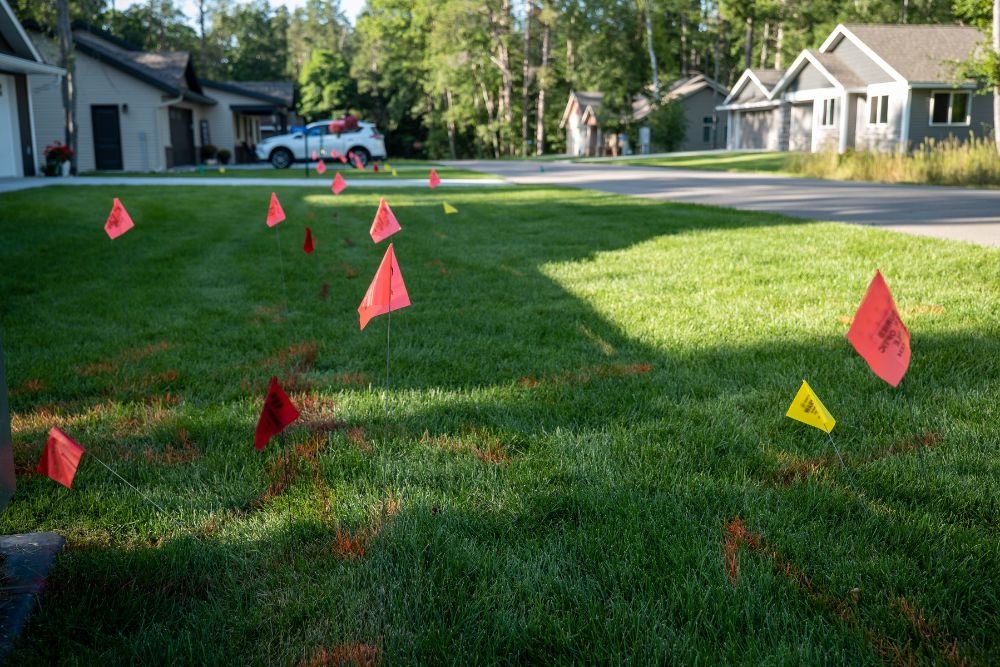
Planning a project that involves digging? Whether it’s for a new patio or just planting some trees, it's crucial to remember one vital step: call before you dig! Underground lines like gas lines are often hidden from view and can be Miami waterfront properties seriously damaged if struck.
By taking a few moments to contact your local digging hotline, you can have these lines marked before you begin digging. This simple action can prevent costly damage, potential injuries, and even save lives. Remember, it's always better to be safe than sorry.
- Make a phone call at 1-800-CALL-BEFORE.
- Give them details about your plan.
- Wait for confirmation that lines have been marked
Call Before You Dig: Safety First!
Before you commence any digging project, remember safety comes first. Hidden wires and pipes underground can cause serious harm if struck. To prevent injury and potential damage, always call before you dig at least two days before starting your work. They will mark the location of any installed utilities so you can work with confidence.
- Keep in mind
- Contacting
- Utilities
Avoid Pipeline Issues: Call Before You Excavate
Before you break ground for any project, whether you're planning, remember to call your local one-call center. This simple step can avoid serious incidents to vital pipelines buried beneath the surface. Digging without knowing what's below can lead to dangerous consequences, putting everyone at risk.
- Always| call 811 before you dig, even for small tasks like planting a tree or installing a fence.
- A qualified locator will identify underground lines to keep things running smoothly.
- Take responsibility and make that call before you dig.
Lurking Utilities, Hidden Dangers: Always Call Before You Excavate
Before you swing that shovel or dig into your yard, remember the unseen world beneath your feet. Underground utilities like gas lines, water pipes, and electrical cables are vital to our daily lives, but they also pose a serious threat if disturbed. A simple misstep during excavation can result in injury, property damage, and costly repairs. To ensure your safety and avoid these potentially catastrophic situations, always call your local utility locating service before you dig. This free service will mark the location of buried utilities in your area, allowing you to dig safely and responsibly.
- Connect with your utility companies directly for information about their specific requirements and procedures.
- Plan your excavation strategically to avoid high-risk areas like near sidewalks, driveways, and trees.
- Use caution when operating heavy machinery around potential utility lines. Always keep a safe distance.
Remember, calling before you dig is not just a suggestion – it's the law in most jurisdictions. By taking this simple step, you can help protect yourself, your property, and the vital infrastructure that keeps our communities functioning.
One Call Can Save Lives and Property: Dig Safely, Call Before You Go
Before you dig into the ground for any job, remember one simple rule: call before you begin.
It's easy to overlook underground lines but they can cause serious injury.
A single dial to the designated utility provider can identify these vital infrastructures and avoid potentially tragic incidents.
Your security and the preservation of valuable property depend on a simple action. Make that call today and excavate with care.
Before You Dig is Essential
Planning a new garden? Installing a fence? Even simple tasks like planting trees can involve hidden dangers if you're unaware of underground utilities. That's where calling before you dig comes in! That's a free service that connects you with local utility companies so they can mark the position of their lines and prevent accidental damage. By taking this simple step, you safeguard yourself, your property, and the essential infrastructure that keeps our communities running smoothly.
- Always call before you dig, even for small projects.
- Locate utility lines at least two days before digging.
- Bear in mind that buried utilities may consist of gas, water, electric, and communication lines.